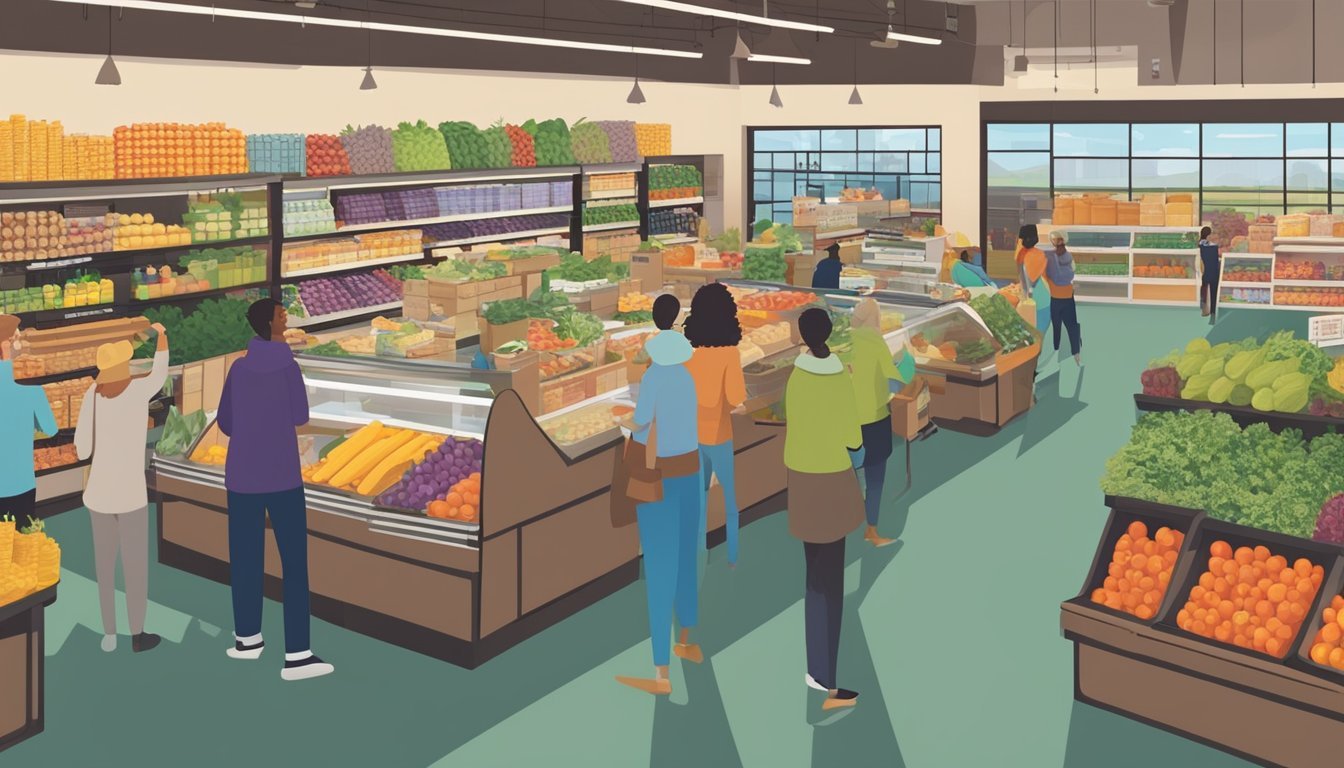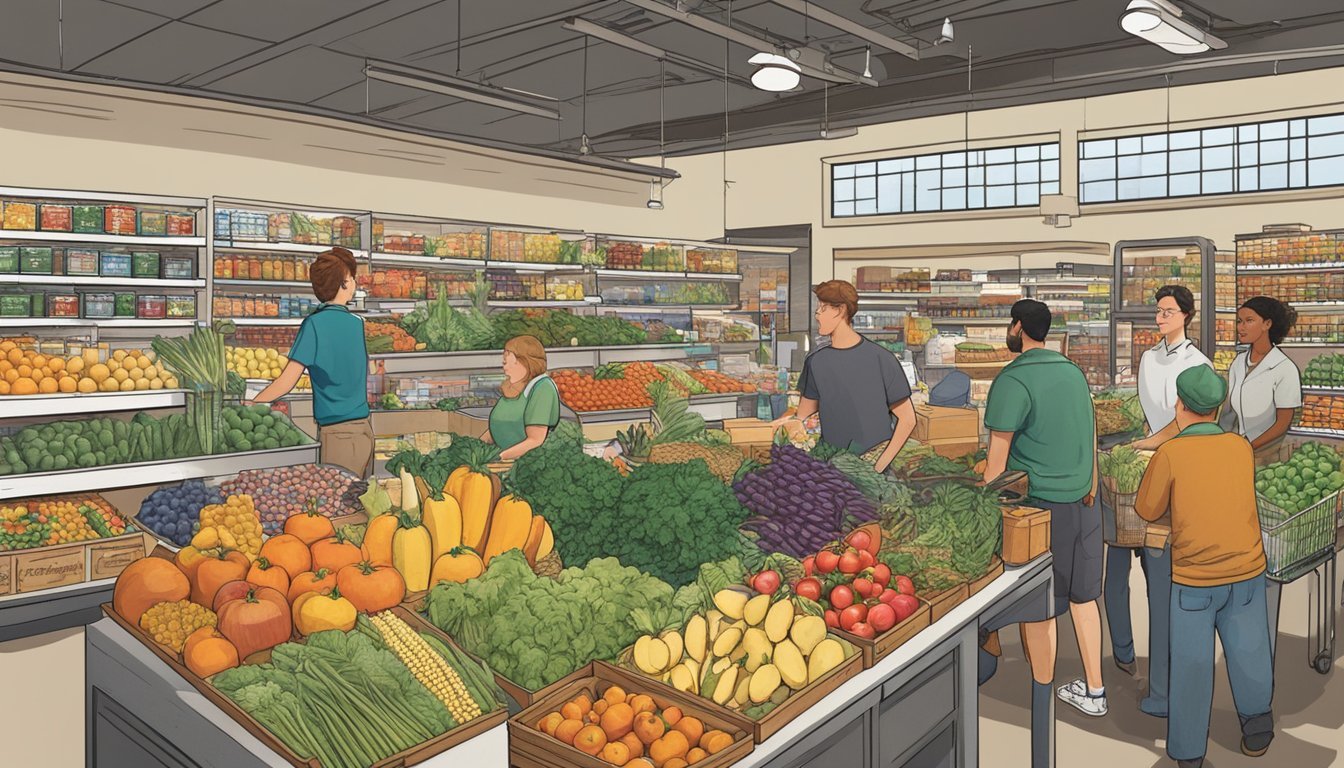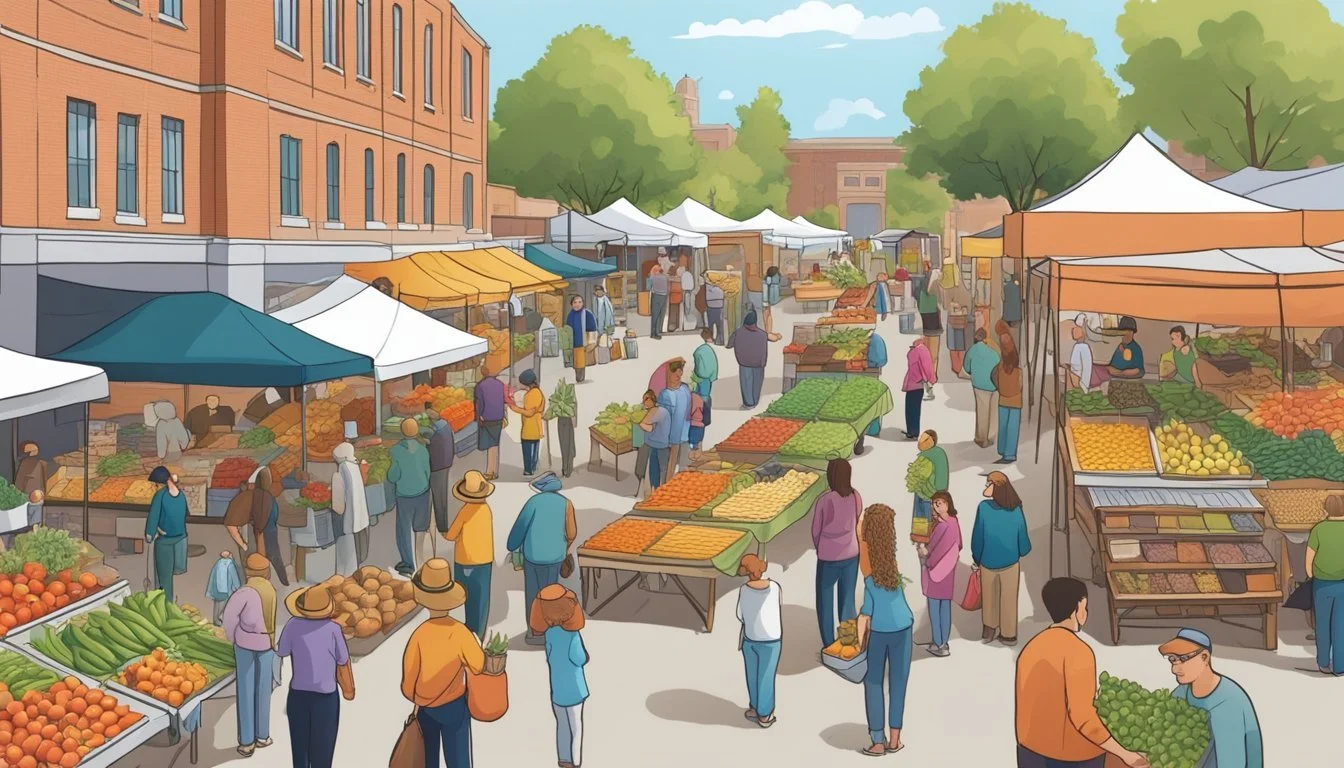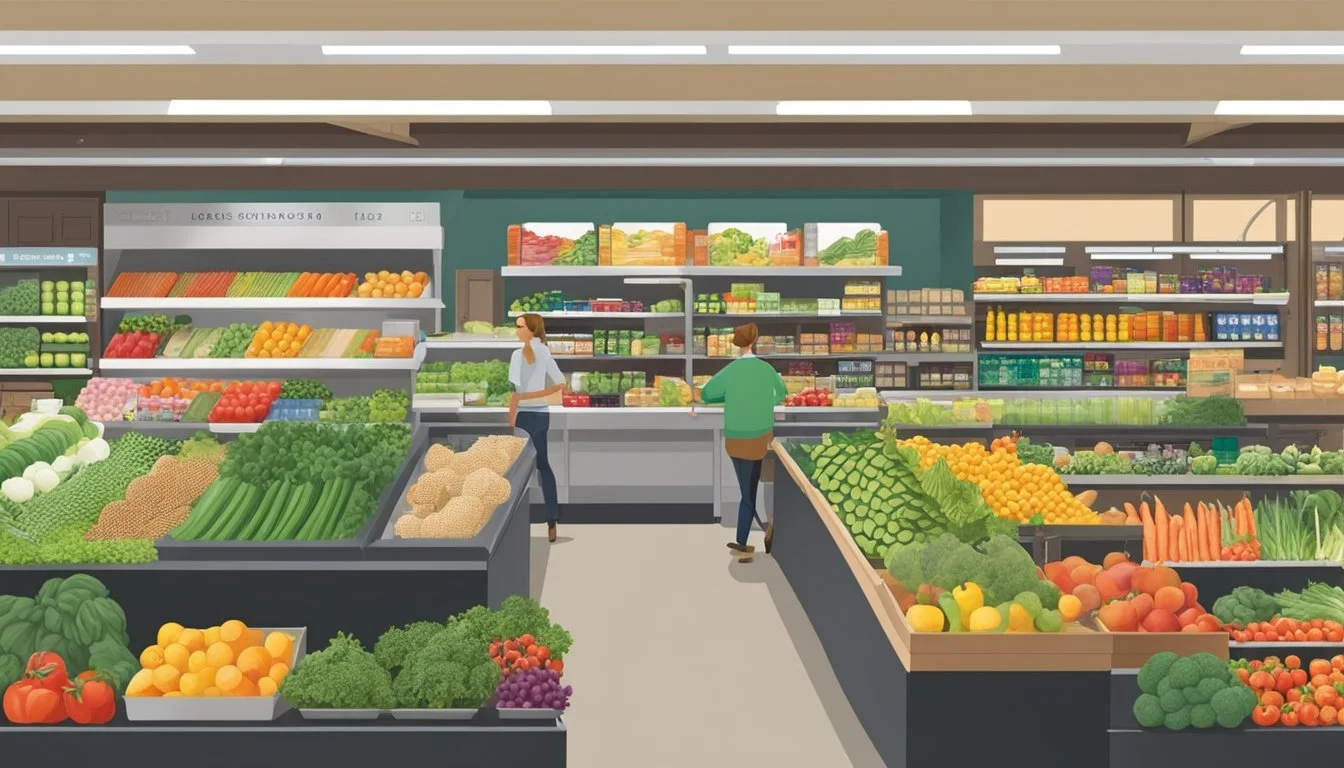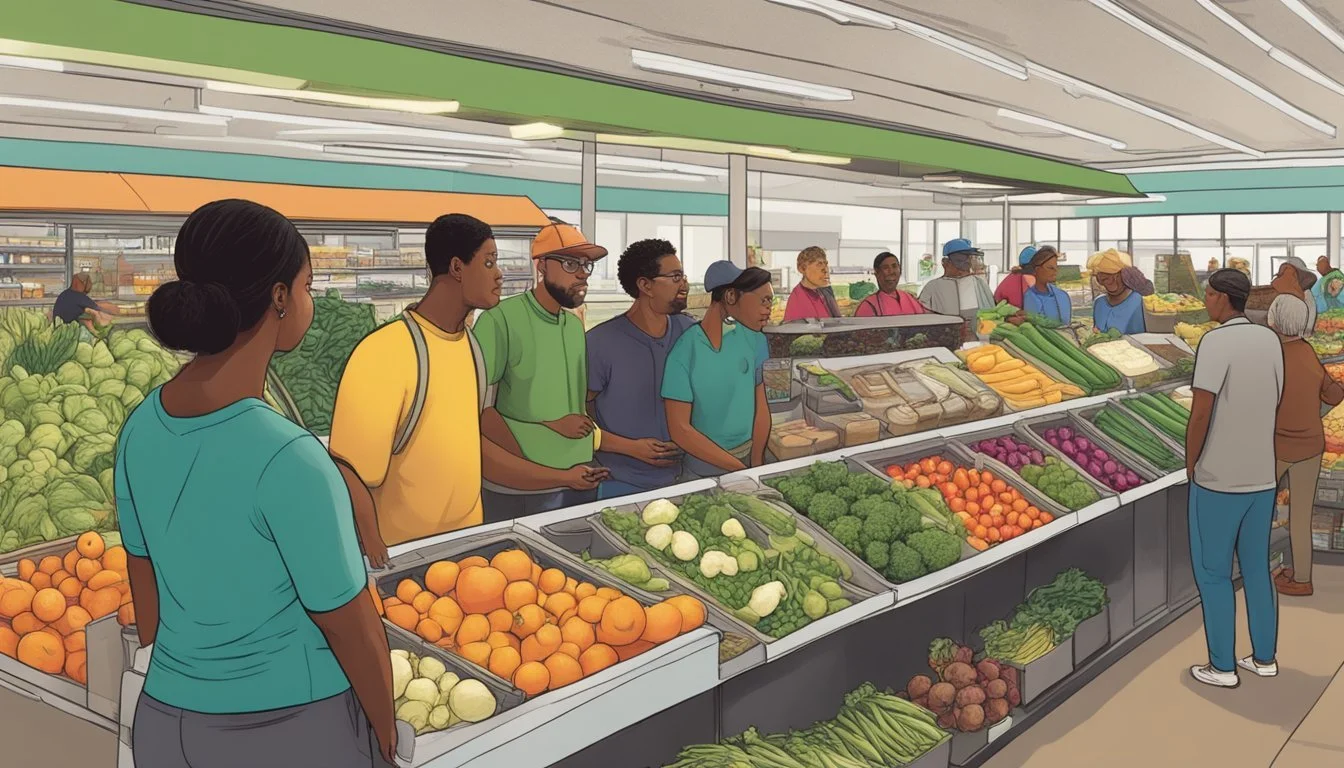Guide to Food Co-Ops in Lincoln, NE
Your Essential Shopping Resource
Lincoln, Nebraska, offers a unique experience for those seeking not just nourishment, but a tight-knit sense of community through their food choices. Food cooperatives, or co-ops, stand as pillars in the city's commitment to sustainability and locally sourced produce. These establishments are more than just grocery stores; they are part of a collaborative effort to support local farmers, producers, and artisans, boosting the local economy and providing consumers with fresh, regional food options.
The co-op model in Lincoln emphasizes community ownership and control, where shoppers can often become member-owners, sharing in the profits and decision-making processes of the store. These co-ops serve as community hubs, where education, healthy living, and connections among Lincoln residents are fostered. One standout example, Open Harvest Co-op Grocery, has been in operation for over four decades, exemplifying a steadfast dedication to 'Real Food. Real Local. Real Community.' Their extensive history includes starting as a buying club in 1971, evolving into a storefront in 1975, and undergoing significant expansions as recently as 2009 to meet the growing needs of the community.
In addition to providing a diverse assortment of organic and locally produced food, Lincoln's food co-ops are actively engaged in preserving the environment by reducing the carbon footprint associated with food transportation and promoting eco-friendly practices. Through their day-to-day operations and community-oriented missions, food co-ops in Lincoln are a testament to the city's values of health, sustainability, and shared prosperity.
Understanding Food Co-Ops
Food Co-Ops are community-centered organizations that operate on member-based principles to serve and sell food. They emphasize sustainability, local sourcing, and democratic member control.
Definition and Principles
A Food Co-Op, or cooperative, is a member-owned, member-governed business that operates for the benefit of its members according to common principles agreed upon by the international cooperative community. In a Food Co-Op, decisions are made by a majority of members with the aim of serving the community more so than generating profits. Cooperatives often emphasize:
Democratic Member Control: Each member has equal voting rights.
Economic Participation: Members contribute equitably to the capital of their co-op.
Autonomy and Independence: Co-Ops are self-help organizations controlled by their members.
Concern for Community: Co-Ops work for the sustainable development of their communities.
History in Lincoln and Nebraska
In Lincoln, the Open Harvest Cooperative Grocery began as a buying club in 1971 and transformed into a retail storefront by 1975. This initiative marked an important point in Nebraska’s history, illustrating the community’s commitment to accessible, quality food.
The Nebraska Food Cooperative is a more modern iteration, set up as an online farmers' market. It has established itself since 2006 as a hub for local producers to offer their goods directly to consumers, thereby fostering a direct connection between Nebraskans and their food sources. This co-op allows:
Producers to detail their operation and available products online.
Customers to buy fresh produce, meat, dairy, and other local goods year-round.
These entities reflect an enduring tradition of cooperative principles in the state, embodying the core values of self-help, self-responsibility, democracy, equality, equity, and solidarity.
The Role of Local Producers
Local producers remain integral to the food ecosystem in Lincoln, NE, as they sustain a robust local food network through partnerships with co-operatives and contribute significantly to the variety and quality of available local food distribution.
Benefits of Collaborating with Co-Ops
Producers in Lincoln have discovered multiple benefits from collaborating with local food co-operatives. Most notably, Open Harvest Co-op Grocery functions as a key player that allows farmers and producers to directly reach consumers without intermediary costs. Producers benefit from reduced marketing expenses and enjoy increased visibility in the community. Furthermore, these cooperatives often offer Net 30 payment terms, affording producers a reliable and prompt return on their products.
Table 1: Benefits for Producers Collaborating with Food Co-Ops
Benefit Description Direct Market Access Producers sell directly to consumers. Community Engagement Increased visibility and brand recognition. Financial Promptness Producers receive timely payments (e.g., Net 30 terms).
Nebraska Producer Contributions
Nebraska's producers play a critical role in contributing to the local food distribution network. Their farms deliver a diverse array of products, from vegetables and honey to meats and eggs. This diversity not only enhances food security but also supports a culture of food stewardship and rural sustainability.
In Lincoln’s local food system plan, the city committed to supporting these producers by making the food system more resilient and sustainable. By prioritizing practices that protect soil, water, and air, Nebraska producers not only supply high-quality food but also steward environmental resources.
List of Nebraska Producer Contributions:
Variety of local produce (vegetables, fruits, honey, meats, eggs)
Support for food security through diversified offerings
Enhancement of rural sustainability
Promotion of environmentally friendly farming practices
How to Become a Member
Joining a food co-op in Lincoln, NE, involves purchasing a share to become an owner, which comes with numerous benefits. This investment represents both a financial commitment to the co-op and an engagement in a community-centered shopping experience.
Membership Benefits
Becoming an owner of a food co-op offers a variety of benefits. Owners have a say in the co-op’s operations, receive special discounts, and could potentially earn patronage dividends based on profits and usage. Beyond tangible rewards, owners contribute to the local economy and have access to fresh, locally-sourced products.
Owner Discounts: Exclusive savings on selected items.
Community Engagement: Voice in store policies and product selections.
Economic Impact: Supports local farmers and producers.
The Process of Becoming an Owner
The process to become a co-op owner typically requires an individual to invest in a share of the cooperative. In Lincoln, NE, this can include a one-time refundable Capital Investment (CI) and a nominal join fee. Some co-ops offer flexible payment plans, making it easier to become an owner.
Visit the Co-op: Potential owners must visit the store in person.
Capital Investment: A refundable CI payment is made, usually amounting to $100.
Join Fee: A small fee, such as $5, is paid to initiate the membership.
Payment Options: Various payment methods can be utilized, including monthly installments.
Participation: Owners are encouraged to engage in store events and initiatives.
By investing in a share and becoming an owner, individuals directly support and shape their local food system, demonstrating a commitment to sustainable, community-oriented business practices.
Navigating the Nebraska Food Co-Op Website
The Nebraska Food Co-Op operates an online platform designed for both producers and consumers. This website serves as a key touchpoint for users to access and purchase a variety of local products all year round.
Finding Local Products
When users visit the Nebraska Food Co-Op website, they are greeted with an array of local products ranging from seasonal fruits and vegetables to artisanal goods. To find local products, users can:
Browse the inventory which fluctuates seasonally, listing as many as 1,000 products during peak growing seasons.
Search by category to filter products based on specific interests or needs such as dairy, meats, bakery, or non-food items.
The website's design and technology facilitate the connection between Nebraska producers and consumers irrespective of the distance between them.
Ordering and Sales Information
The purchasing process on the Nebraska Food Co-Op website is straightforward:
Buying cycles close at 8:00 PM on Sunday, allowing producers to weigh and sort orders before generating invoices.
Product availability fluctuates throughout the year; this means that consumers should stay informed about the purchasing cycles relevant to their desired products.
The platform acts as a technological bridge between the demand for quality local food and Nebraska's producers, ensuring that the Cooperative's sales process supports both parties efficiently.
Support and Funding
In Lincoln, Nebraska, food cooperatives (co-ops) are sustained through various funding avenues and robust community support. These co-ops thrive on the commitment of local businesses and individuals dedicated to sustaining a resilient local food system.
Understanding Co-Op Funding
Sources of Funding:
Grants: Food co-ops may apply for state or private grants dedicated to agricultural or local business development.
Membership Fees: They often rely on membership fees, providing members with a stake in the co-op's success.
Fundraising: Community fundraising events can provide additional financial support, harnessing the local community's commitment to sustainability.
Funding Utilization:
Investment in infrastructure for food storage and distribution.
Financing educational initiatives to inform the public about the benefits of local food systems.
Supporting local farmers through direct purchasing and marketing assistance.
Community Support for Sustainability
The resilience of co-ops in Lincoln is bolstered by:
Local Business Participation:
Collaboration between co-ops and local businesses amplifies local food circulation and breeds an interconnected economic environment.
Local businesses often support co-ops by offering discounts or selling local products, thereby investing in the community's health and sustainability.
Consumer Involvement:
Residents in Lincoln contribute to co-op sustainability by preferring to shop at co-ops, partaking in their governance, and volunteering at related events.
Educational programs empower consumers to understand the impact of their purchases on local farmers and the environment, further solidifying community support.
Local Distribution Networks
In Lincoln, NE, local distribution networks are essential for connecting consumers with fresh, locally-sourced food. They leverage partnerships between producers, distribution services, and retail outlets, playing a pivotal role in sustaining the community's access to regional produce and goods.
Pick-Up Sites and Distribution
Producers and distribution services have established various pick-up sites throughout Lincoln, supporting a streamlined system for local food acquisition. These sites are strategically located to serve a broad segment of the urban population, ensuring community members have convenient access to farm-fresh products.
For instance:
Nebraska Food Cooperative: Operates as an online farmers market with multiple pick-up sites, facilitating year-round access to local meats, dairy, and produce.
Open Harvest Co-op Grocery: With a co-op model, the organization offers goods from local farmers and artisans to its member-owners and the public.
Local Businesses and Grocers
Local businesses in Lincoln, including specialty grocers and food cooperatives, are integral to the food distribution network. They champion the support of Nebraska’s agriculture by directly stocking and selling local products.
Notable local grocers:
Open Harvest Co-op Grocery: A consumer cooperative that provides a retail platform for local goods, sustaining the local economy and offering a diverse range in food options.
Local partnerships have flourished, with entities like schools, hospitals, and other institutions committing to incorporating local food into their purchasing policies. This not only nurtures local agricultural producers but also strengthens the food network within Lincoln, NE.
Community Impact
Food cooperatives in Lincoln, Nebraska, play a significant role in bolstering the community by providing economic benefits and contributing to environmental sustainability.
Economic Benefits
Food co-ops in Lincoln are pivotal in keeping the local economy robust. By prioritizing local products, they ensure that money spent by consumers circulates within the community, enhancing the economic stability and prosperity of the area. For instance:
Local Sales: Revenue from co-ops stays largely within Lincoln, directly benefiting local producers and service providers.
Job Creation: Co-ops are sources of employment, offering jobs to residents and often paying sustainable wages.
Environmental Contributions
The environmental contributions of Lincoln's food co-ops cannot be understated. These co-ops have made a concrete impact by:
Reducing Food Miles: By sourcing locally, co-ops minimize the distance food travels from farm to table, which in turn lowers greenhouse gas emissions.
Sustainable Practices: Local sourcing encourages environmentally friendly farming and manufacturing practices, fostering a healthier ecosystem.
Annual Events and Outreach
In Lincoln, Nebraska, food co-ops actively engage the community with a range of annual events and educational outreach programs. They prioritize both sustainability and a strong local food economy.
Co-Op Sponsored Events
Open Harvest Co-op Grocery has taken a significant role in nurturing community health through various initiatives. One notable program is the SEED Program, allowing patrons to round up their grocery bill to support local organizations that align with fostering a healthy, sustainable food ecosystem. Open Harvest often designates months to feature and support these organizations, providing them a platform for greater visibility and financial support.
Another impactful annual event is the Nebraska Cooperative Council’s Annual Meeting, where co-op members, including those from food co-ops, gather to discuss pertinent issues. The events are also educational, providing insights into co-op principles and their application in advancing local food distribution.
Collaborations with Farmers Markets
Food co-ops in Lincoln collaborate with area farmers markets to bridge the gap between local producers and consumers. These partnerships are vital for local food distribution, ensuring that the community has access to fresh, local produce. For instance, Open Harvest Co-op Grocery encourages relationships between community gardeners, home gardeners, and farmers market vendors. These connections are emphasized to enhance cooperation and reinforce the food co-op’s role in strengthening the local food economy.
By actively engaging with farmers markets, the co-op supports the local food system and reinforces their commitment to providing their members and the wider community with high-quality, locally-sourced food. Additionally, these collaborations help educate the public on the value of local food systems and their contributions to health and the local economy.
Direct Benefits to Consumers
Food co-ops in Lincoln, NE, offer a range of benefits to consumers looking for high-quality, locally sourced products. These institutions prioritize fresh, nutritious food and foster meaningful connections with local food producers.
Access to Fresh Produce and Meats
Shoppers at Lincoln food co-ops enjoy the distinct advantage of accessing fresh produce and meats. Meats and eggs come from animals raised on nearby farms often employing sustainable practices. These co-ops partner with organizations like Buy Fresh Buy Local Nebraska, ensuring that the fruits and vegetables available are seasonally fresh, supporting both optimal nutrition and local agriculture.
Available Fresh Items:
Fruits: Apples, Berries, Stone Fruits
Vegetables: Leafy Greens, Root Vegetables, Seasonal Squashes
Meats: Beef, Pork, Poultry
Eggs: Free-range, Locally Sourced
Building Relationships with Producers
By engaging with food co-ops, consumers are not just purchasing food; they are investing in their community. They have the opportunity to build relationships with the people behind their food, which can include family-operated farms or collective agrarian initiatives. These connections enhance the shopping experience, imbuing it with transparency and trust. Consumers learn about the practices used in growing food, and producers can share their passion and knowledge directly with the people they feed.


